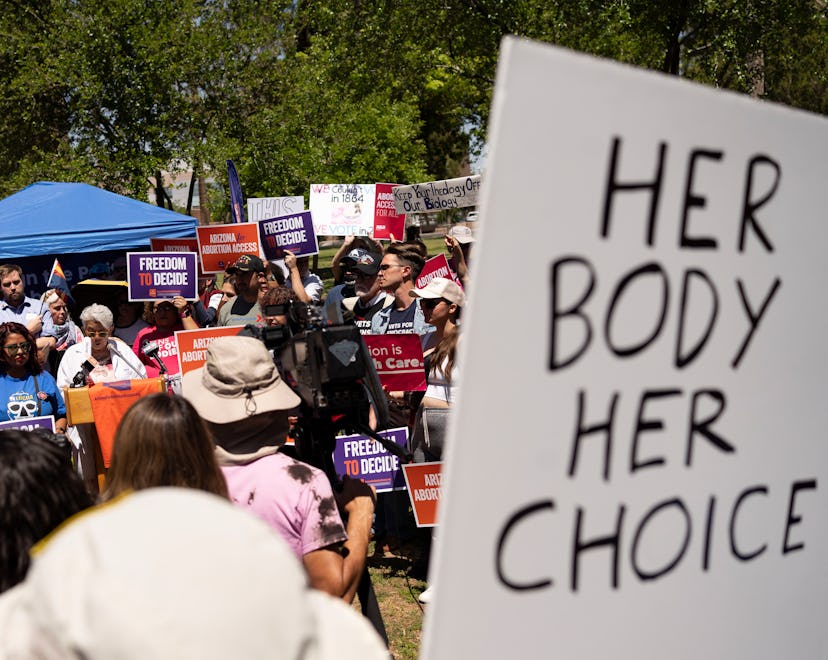Life

Strict Abortion Laws Have Led To Confusion & Pregnancy Loss In Dozens Of ERs
Federal laws protect doctors & patients, but remain unevenly applied.
When Roe v Wade was reversed in June 2022, abortion rights advocates warned of dire consequences, including increased risk for pregnant people seeking care across the country. And indeed, while the Emergency Medical Treatment and Labor Act (EMTALA) protects the right of pregnant patients to receive emergent care at any medical facility that participates in Medicare at a federal level, the unclear wording of state-by-state abortion care laws has led many pregnant people seeking emergency care to be turned away from ERs in states hostile to abortion, according to reporting from the Associated Press (AP).
Because spontaneous abortion, otherwise known as a miscarriage, can be medically indistinguishable from an intentional termination in many cases, providers fear liability under strict abortion laws. As a result, Sara Rosenbaum, a George Washington University health law and policy professor told AP that pregnant people have “become radioactive to emergency departments” in such states. “They are so scared of a pregnant patient, that the emergency medicine staff won’t even look. They just want these people gone,” she added.
Through a February 2023 Freedom of Information Act (FoIA) request, AP has uncovered dozens of pregnancy related complaints related to EMTALA complaints from the previous year. The federal government concedes this is only some of the complaints filed in 19 states. Names of patients, doctors, and other medical personnel were redacted from the documents obtained by AP. At this time, there is no available data for any year beyond 2022.
But the information that is available in and of itself paints a troubling picture. At Sacred Heart Emergency Center, for example, a free-standing emergency room in Texas, a pregnant woman who was denied admission when asked for help delivering her baby then miscarried in the center’s lobby bathroom. When 911 services arrived, the complain notes, they were confused by the hospital’s actions. While flouting the EMTALA can result in hefty fines for offending medical facilities, very often bereft or injured patients do not even file complaints. Furthermore, even when complaints are filed, it’s an open question as to what will become of them. AP notes that levying fines can take years.
“They’re investigated but nothing really comes of it,” Amelia Huntsberger, an OB-Gyn told the outlet. “People are just going to keep providing substandard care or not providing care. The only way that changes is things like this.” While EMTALA, which is enforced by the Department of Health and Human Services (HHS), does protect physicians providing care to patients, multiple hospital investigations by the government agency found that patients were not receiving adequate stabilizing care. AP reports that it is this atmosphere that prompting Huntsberger to move her practice from Idaho, a state with strict abortion laws, to Oregon, one of the most permissive. It was, perhaps, a prescient move.
Idaho is at the center of an upcoming Supreme Court case regarding EMTALA. On April 24, SCOTUS will hear arguments for Idaho v. United States and Moyle v. United States, consolidated cases that brought by the Biden administration challenging Idaho’s draconian abortion law The Defense of Life Act, which they assert is preempted by EMTALA. Should the administration lose this case, the effects could further complicate emergency care across the country, sending even more pregnant patients away without stabilizing, life-saving care.